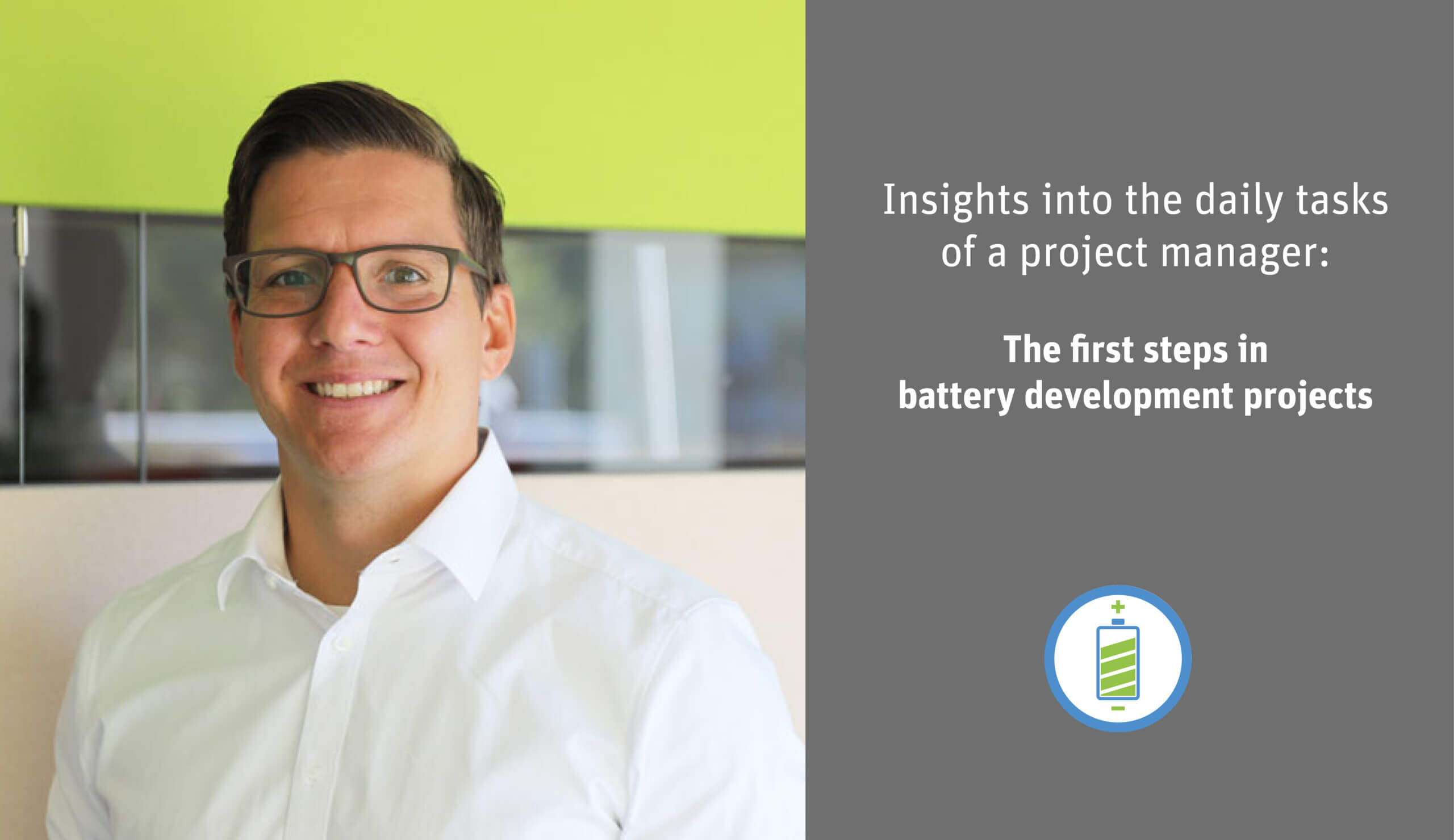
In the consumer sector, the decision for the right battery is made quickly. There are standard batteries which fit in consumer applications. However, in the industrial or medical technology sector, the situation is different. For these applications, “off-the-shelf” batteries are often not suitable. There are special requirements concerning safety or space. The solution: individually developed batteries.
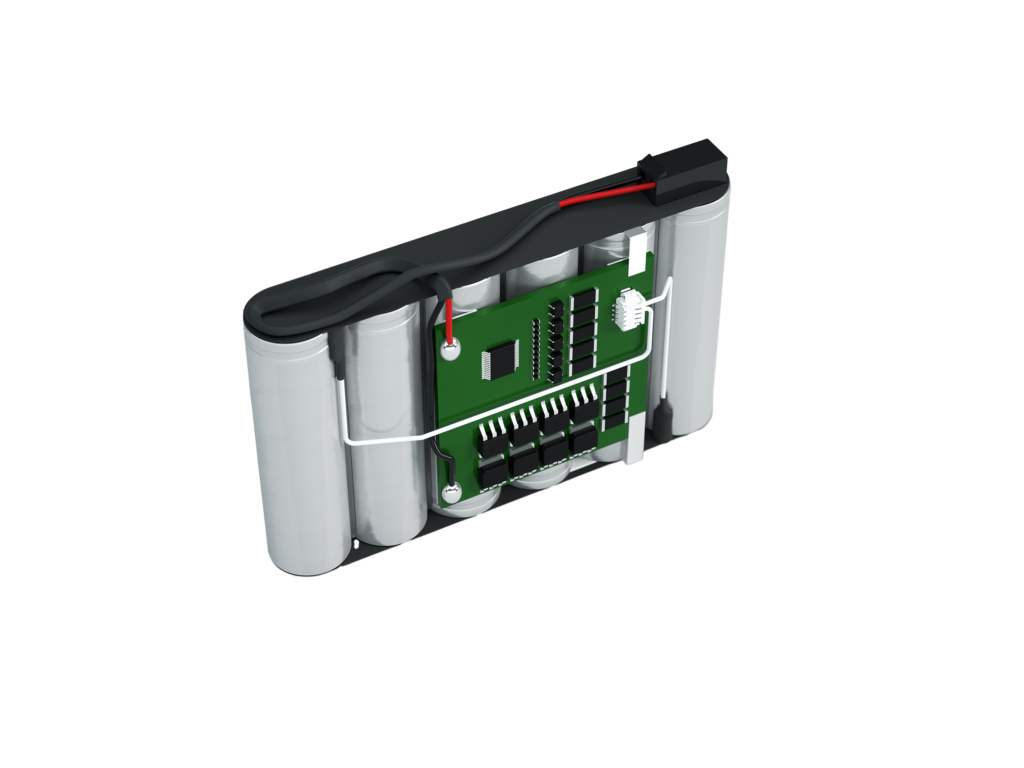
It is often a long way from the idea to the final battery. Many decisions must be made based on the requirements of the battery. The duration of a development project always varies and cannot be generalized. On average, more time is needed for projects in the medical sector than in the industry. Among other things, the reasons are extremely high safety requirements and long medical trials. No wonder! After all, the devices are used directly on humans and must therefore be absolutely safe.

Complex battery development projects are supported by our project team. We spoke with project manager Viktor Sichwardt about the first steps and got some exciting insights:
The first steps
A project starts with the customer’s inquiry. Our project management team already receives the first information about the battery requirements. Important at this point: contact us as soon as possible! “For us, it is really important to be part of the development process as early as possible. If the product is already developed, it can be difficult to produce a suitable battery,” emphasizes Viktor Sichwardt. One possible problem is that the required battery does not fit into the planned space.
Whether and how much information is available at the beginning always varies: “We have customers who come to us with very precise ideas and requirements and also already know which certifications are needed. Others are still at the stage of the first product idea and trust our expertise in the development process” tells the project manager. “In the second case, we are happy to take our customer on the development journey and explain our recommendations.”
Identifying the individual requirements
The exchange between the customer and our project management is important during the entire development process. A comprehensive information base helps to make the right decisions, such as choosing the right cell. Various factors play a role here, including the choice of cell chemistry, cell size or delivery times. As you can see: especially in the initial phase, our customers have to ask themselves many questions.
“Why we at Jauch ask so many questions? We want to understand the product, how it works and how it will be used. Only then we can offer THE perfect solution.”
Viktor Sichwardt, Project Manager at Jauch Quartz
These topics are discussed:
- What currents and voltage are needed?
- How much space is available?
- Are there any external influences (e.g. temperatures, vibration, etc.) that the battery must withstand?
- What cell chemistry is suitable?
- What are the requirements for the mechanical design?
- What must the protection electronics be able to do?
- What is the planned lifetime (charging cycles but also calendric time)?
- Where will the product be sold later?
- Which certifications are required?
The choice of the appropriate cell chemistry is a key issue. Should the cell be rechargeable or is a primary battery more suitable? In the case of rechargeable batteries: under what conditions could the charging process take place? We have different cell chemistries in our portfolio so that the battery can be selected according to the requirements. For example, in these locking cylinders lithium manganese dioxide batteries from our own brand Jauch are installed. In the blog post about this project, you can read why this was the right decision.
Further, the requirements for the electrical voltage, the current profile, the temperature ranges and, of course, the battery dimensions must be clarified. The choice of protection electronics must also be decided. Viktor Sichwardt says: “PCM or BMS – both protect against misuse, but only the BMS offers some additional functions. Only the customers knows whether they are needed.” On request, our project managers help to weigh up the functions required and thus in choosing the right protection electronics. For more information on the differences between PCM and BMS, click here.
Certify correctly
Where will the product be sold, and which standards must be certified?
IEC, UN 38.3 or UL2054? Many certifications are possible, not all are required. Which ones are necessary or recommended for a project is not an easy decision. Depending on the country of approval, there are additionally different country-specific certifications or deviations from them. In some circumstances, the issue begins with the choice of cells. “Some tests and certifications can be made here at Jauch, others are done at external testing institutes. In any case, we take care of the required certifications of the battery.” explains Viktor Sichwardt.
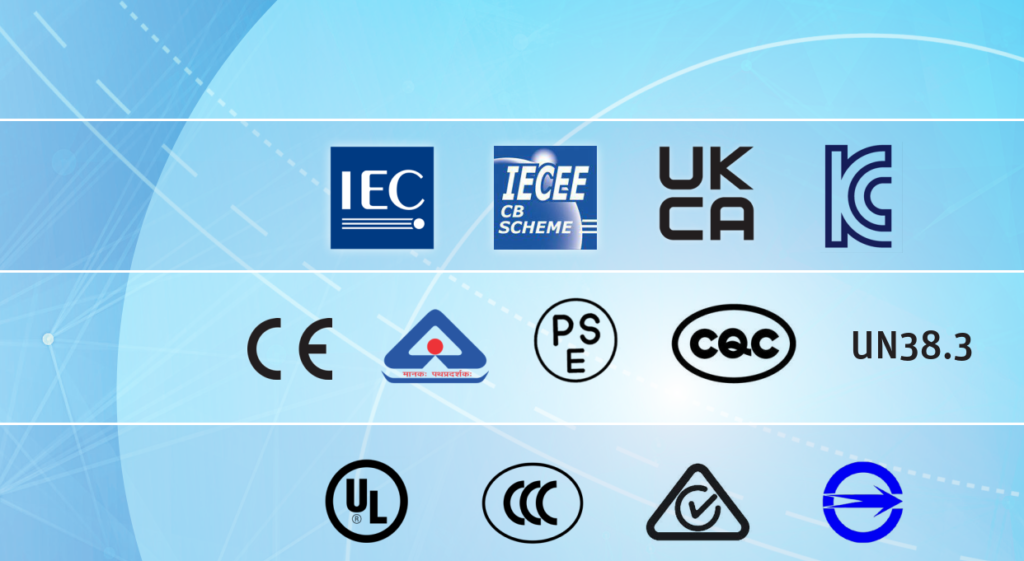
Every battery development project is individual and presents our project team with new challenges – “That’s exactly what’s so exciting about our work in project management! We deal with new products and industries every day. This is how we continuously expand our expertise and find a suitable solution for our customers,” concludes Viktor Sichwardt.
If you would also like support in developing a battery, please feel free to contact us. You are in the best hands with our sales and project management teams.


 Deutsch
Deutsch 

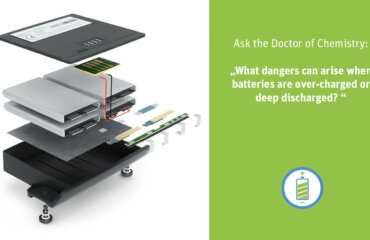
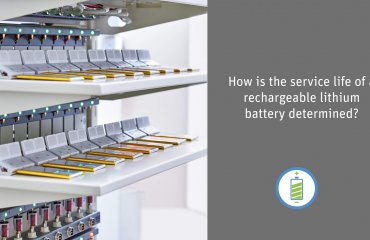

Nice post, very informative.